Sex, Lies and Shitposting
Mark Warren examines what effects 2014's gamergate scandal still has on internet gaming communities in 2020.
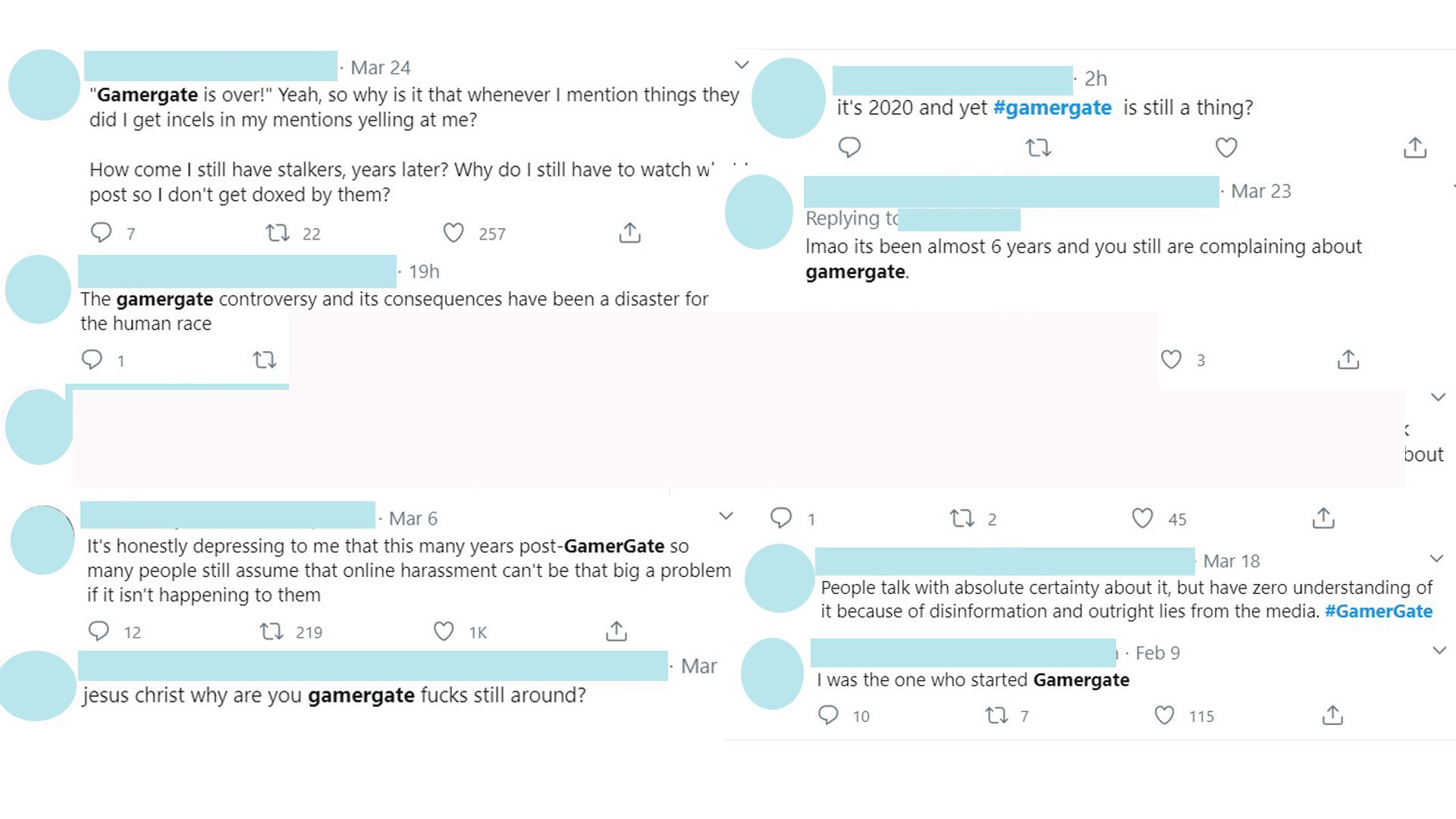
On August 16, 2014, a man named Eron Gjoni published a blog post.
It was called ‘The Zoe Post’ and read more like a dramatic novel, describing in great detail the downfall of a relationship between Gjoni and game developer Zoe Quinn. However, the drama contained within the post paled in comparison to the drama caused within internet gaming communities by its chief accusation, that Quinn had slept with Kotaku journalist Nathan Grayson in order to gain favourable coverage of her games.
This drama came to be known as the gamergate scandal. Game developer Matt Lacey remembers encountering gamergate as it unfolded: “The scale of it came as a shock definitely, looking back it seems so obvious that something like that was going to happen since we had precursor dramas around Feminist Frequency already. I remember reading the "Zoe post" back when (YouTuber) TotalBiscuit signal boosted it and it was causing a ruckus on Twitter.”
For journalist Leigh Alexander, who was Editor-at-Large of Gamasutra at the time, the eruption of the scandal didn’t come as a complete surprise: “I had already been writing for some of these audiences for some time at that point and knew how they could be. I think it was more the volume and scale that surprised me.”
It didn’t take Lacey long to conclude that the post’s main accusation against Quinn wasn’t true, as he found the article that Gjoni claimed had shown Grayson’s favourable coverage of Quinn: “Not only was it not a review and not an endorsement of Zoe, it was written before Eron says she slept with the author! So, after following just two links, I'd already ascertained that it was a nonsense accusation and that the drama was obviously dis-proven misinformation. I naively thought people would wise up pretty quickly and calm down.”
As Lacey eludes to, people didn’t calm down. Gamergate instead began to spread, with its perpetrators expanding the list of people they had issues with beyond just Zoe Quinn. One of these victims was Alexander, who wrote an article for Gamasutra discussing the state of gaming culture just over a week after ‘The Zoe Post’ was published.
Alexander wasn’t surprised that this article lead to her being added to the list of targets: “I think to some extent I deliberately antagonized them, but I was genuinely disgusted with the low point in our community that the whole thing represented. The very idea that they were concerned about "ethics" was laughable to me; it was an excuse to bully Zoe. So I figured if they wanted to supposedly have a conversation with the media, about the media, I would step in.”
As 2014 progressed, it became clear that gamergate was more than a single flurry of reaction to a controversial blog post. Instead, it morphed into prolonged campaign of harassment against Quinn, Alexander and a number of other prominent women in and around the games industry, including Anita Sarkeesian, founder of Feminist Frequency, an organisation that advocates for better representation of gender, race and sexuality in mass media and developer Brianna Wu.
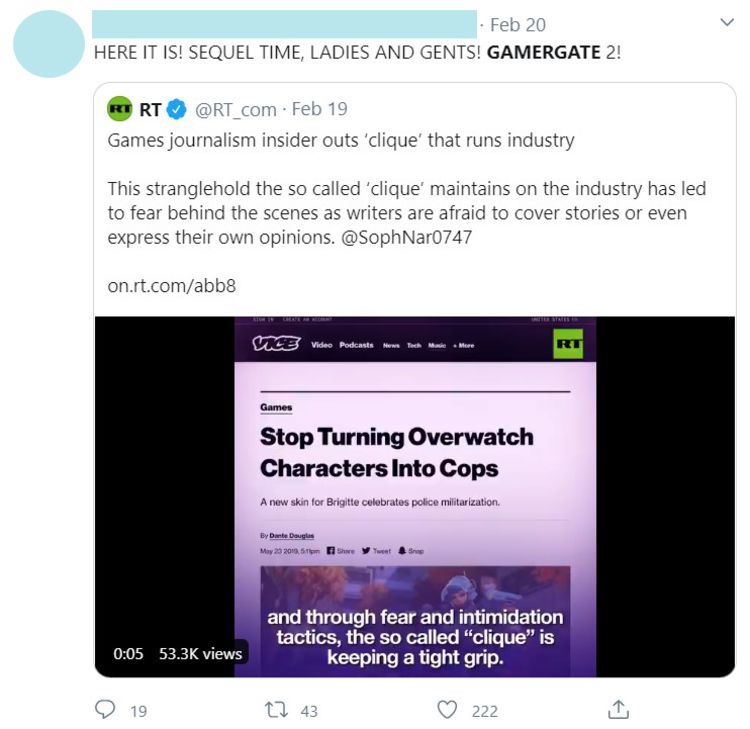
Twitter still receives posts which discuss or reference gamergate on an almost daily basis, including this one in response to a rather incendiary piece from Russia Today.
Twitter still receives posts which discuss or reference gamergate on an almost daily basis, including this one in response to a rather incendiary piece from Russia Today.
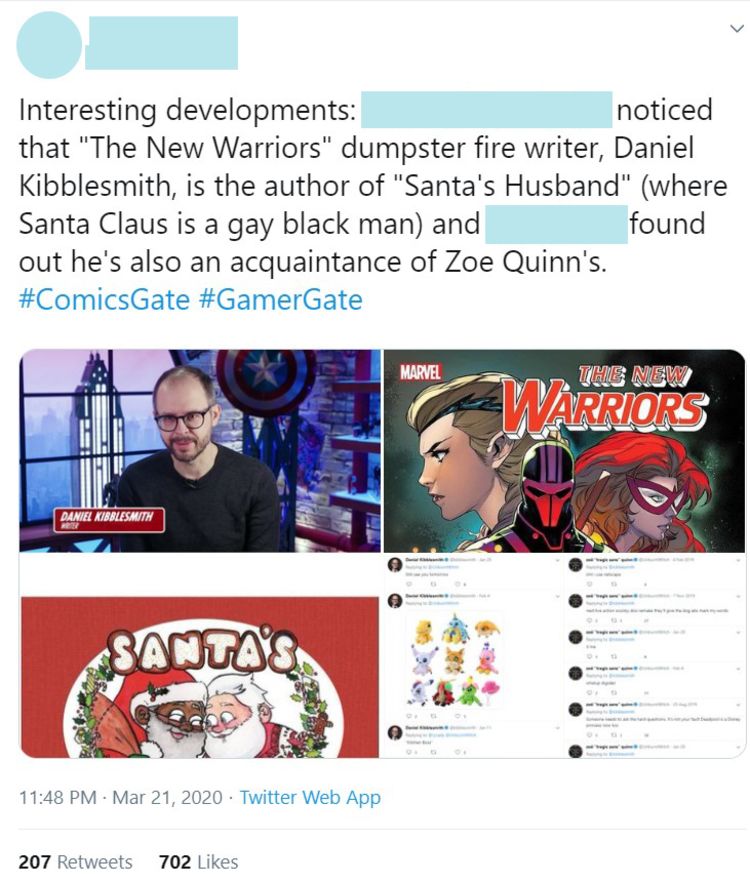
A vocal minority of accounts continue to openly identify with gamergate and post about topics like diversity in games.
A vocal minority of accounts continue to openly identify with gamergate and post about topics like diversity in games.
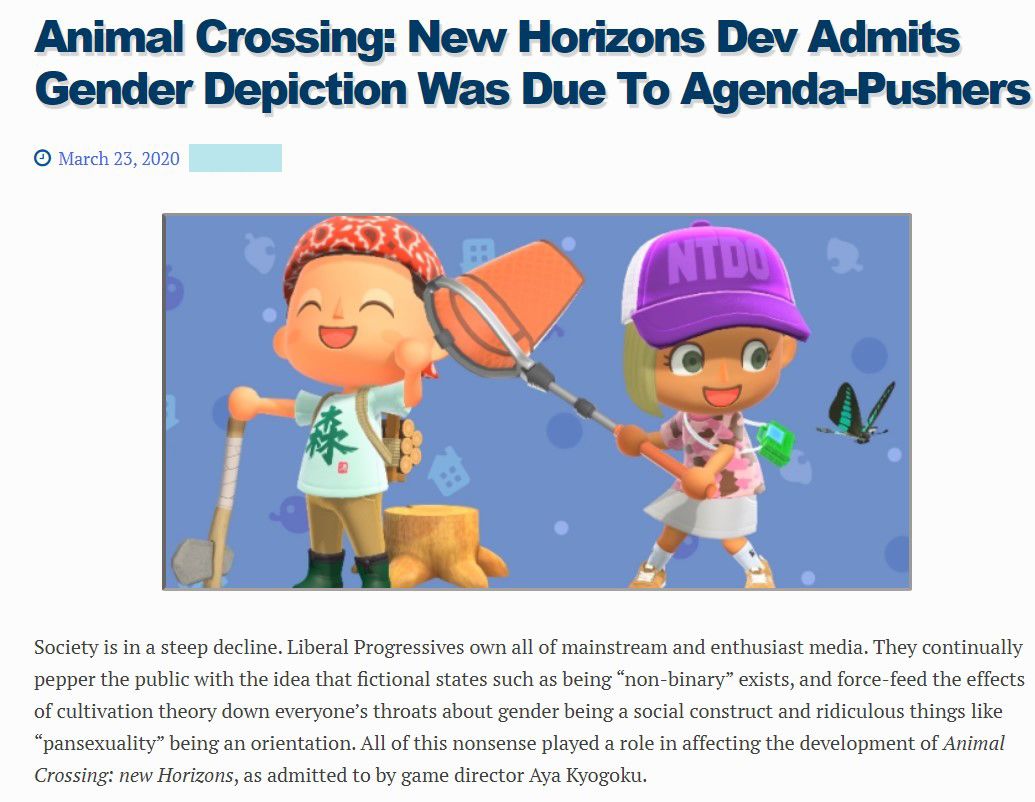
Some of these accounts have even founded their own blogs and websites based around providing alternative coverage to traditional games media which fits with some of the prevalent attitudes of the gamergate movement.
Some of these accounts have even founded their own blogs and websites based around providing alternative coverage to traditional games media which fits with some of the prevalent attitudes of the gamergate movement.
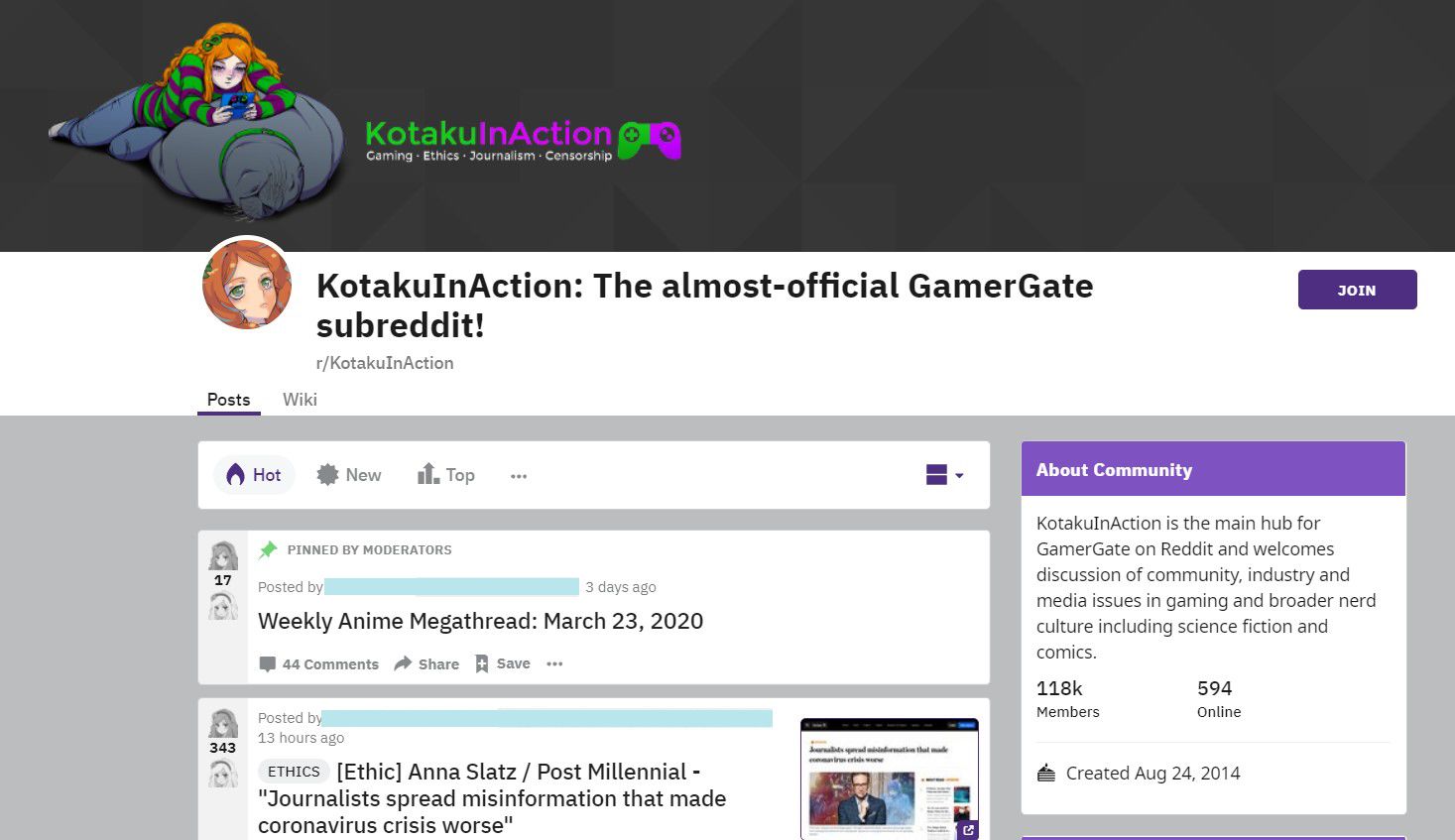
The reddit page r/kotakuinaction, which was founded as a discussion forum for pro-gamergate people during the original scandal, still operates today. It has a fairly large active community and, as you can see, doesn't exactly hide its origin story.
The reddit page r/kotakuinaction, which was founded as a discussion forum for pro-gamergate people during the original scandal, still operates today. It has a fairly large active community and, as you can see, doesn't exactly hide its origin story.
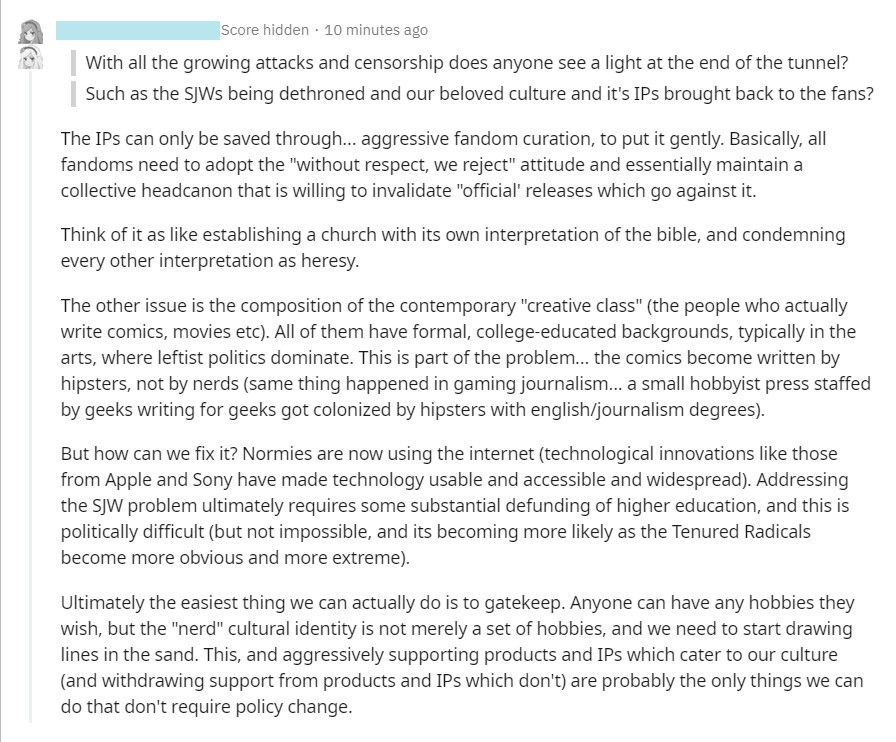
While it also hosts an array of discussions about anime, games and comic books, the subreddit is still home to a vast array of threads based around the central themes and attitudes exhibited in 2014's gamergate movement.
While it also hosts an array of discussions about anime, games and comic books, the subreddit is still home to a vast array of threads based around the central themes and attitudes exhibited in 2014's gamergate movement.
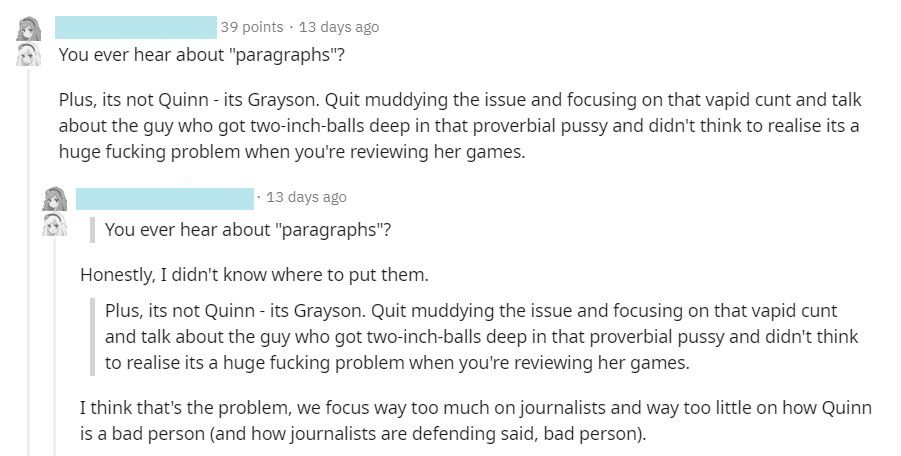
In fact, there are still some discussions referencing some of the people targeted during the original scandal. The replies above came in response to a post arguing that 'The Zoe Post' should have inspired more discussion about Zoe Quinn being a bad person than it did about ethics in games journalism.
In fact, there are still some discussions referencing some of the people targeted during the original scandal. The replies above came in response to a post arguing that 'The Zoe Post' should have inspired more discussion about Zoe Quinn being a bad person than it did about ethics in games journalism.
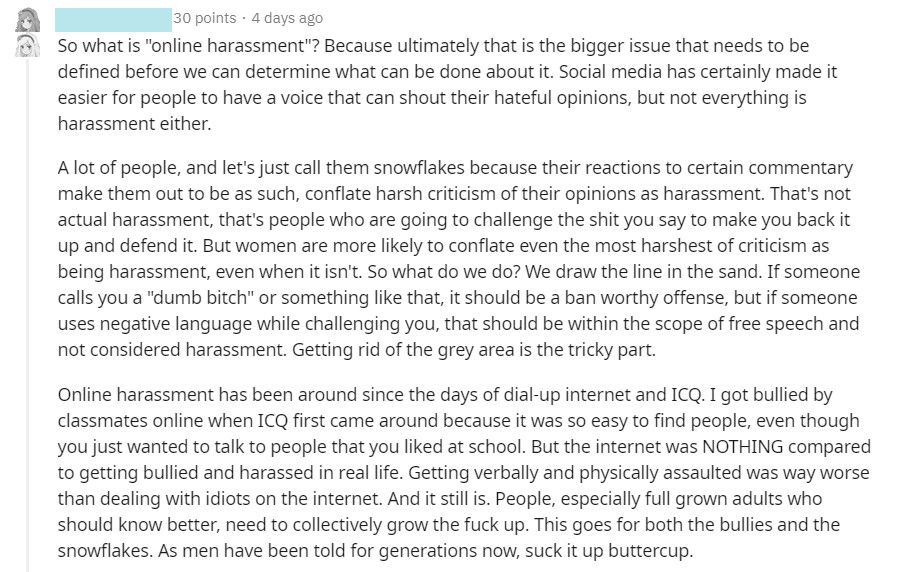
However, as the above post shows, many of the subreddit's users don't view what they do as harassment, but rather as harsh criticism, which their targets simply can't handle because they're 'snowflakes' who should learn to 'suck it up'.
However, as the above post shows, many of the subreddit's users don't view what they do as harassment, but rather as harsh criticism, which their targets simply can't handle because they're 'snowflakes' who should learn to 'suck it up'.
The scandal began to fade away from mainstream attention as 2015 began, however, the online movement it fostered and the controversial opinions it promoted didn't disappear.
Jessica O’Donnell, author of a number of academic journal articles about gamergate, argues that it is unlikely to ever fizzle out completely, as the attitudes behind it pre-date the scandal itself. She argues the “primary difference” gamergate has made to today’s internet communities “is in the language used, and the idea of being a ‘Gamergater’ as being a kind of identity/quasi-political affiliation.”
Almost six years on from the ‘Zoe Post’, social media still sees almost daily posts referencing gamergate. The priority of today’s gamergate communities, which take the form of leaderless groups spread across numerous websites, is less focused around the unfiltered sexist abuse that defined the original scandal. Instead, posters inspired by it often target inclusive game design in general.
“Anything involving the LGBT+ community always brings a lot of shitty people out of the woods.” says Dawnya Lynn, an American artist who founded the Twitter account ‘Shitty Gamer Takes’, which highlights posts by self-identified gamers that express notably controversial or offensive opinions about games.
“Also, stuff involving race.”, she adds, “Put a not straight, not white dude in a video game? You might as well have set the Louvre on fire to some of these people. God help you if that character is a woman on top of that, or even non-binary.”
Lynn has largely focused on highlighting controversial posts on Twitter, but also gets submissions from Reddit. However, she finds 4chan “a difficult site to tackle in that regard” and is wary of including it, due to the site’s pervasive negativity.
Lynn admits it’s often difficult to tell whether or not the gamers she features are direct supporters of gamergate, as “most don't have that affiliation anywhere on their profile that is easily seen.”
There have been attempts by social media platforms and game companies to address offensive and abusive content since gamergate, with varied levels of success. “Because of the nature of the internet, it’s not really feasible to completely curb online abuse,” says O’Donnell, adding: ‘I think there is still a way to go in terms of finding something truly effective.”
The negative influence of gamergate on the social media discourse has also had a long term effect on women in and around the games industry.
Alexander says the experience she had online during the scandal has made it more difficult for her to encourage women to get involved in games in the years since: “For most of my career I had worked really hard, even despite occasional harassment and sexism and all the horror stories you hear about women in games, to advance a view of the industry that was modern, and inclusive, that was relevant to normal people, that was a diverse and healthy medium. I really staked a lot of my career on dispelling stereotypes of the industry as nerdy and weird and for creepy dudes only. But after all of that went down I was a lot less convinced of those positions if I'm honest.”
She adds: “I certainly find it difficult to enthusiastically invite women into the field, where we are generally supported in language but never in practice.”
Lacey echoes this: “The amount of talent we probably lost because they decided that games just weren't worth getting into is a real tragedy.”
Moving forward, Alexander isn’t sure if things will get better in terms of gamergate’s impact on gaming communities: “I do hope the tide is turning in terms of society's long-standing ability to tolerate violence toward women, it feels like that's changing. But sometimes I think the game industry is kind of always going to be ‘like this’”
O’Donnell is slightly more optimistic: “Obviously, the presence of the internet and social media allows for hate campaigns such as Gamergate to grow to far greater levels than they would have in a pre-digital age, but overall I think we’re seeing improvements in their handling, if only small ones.”
When Eron Gjoni clicked publish on his blog post in 2014, he likely didn’t consider that we’d still be dealing with the fallout from it in 2020. However, while gamergate continues to inspire some people to this day, it seems unlikely that we’ll see another eruption with the voracity of the 2014’s scandal in the near future.
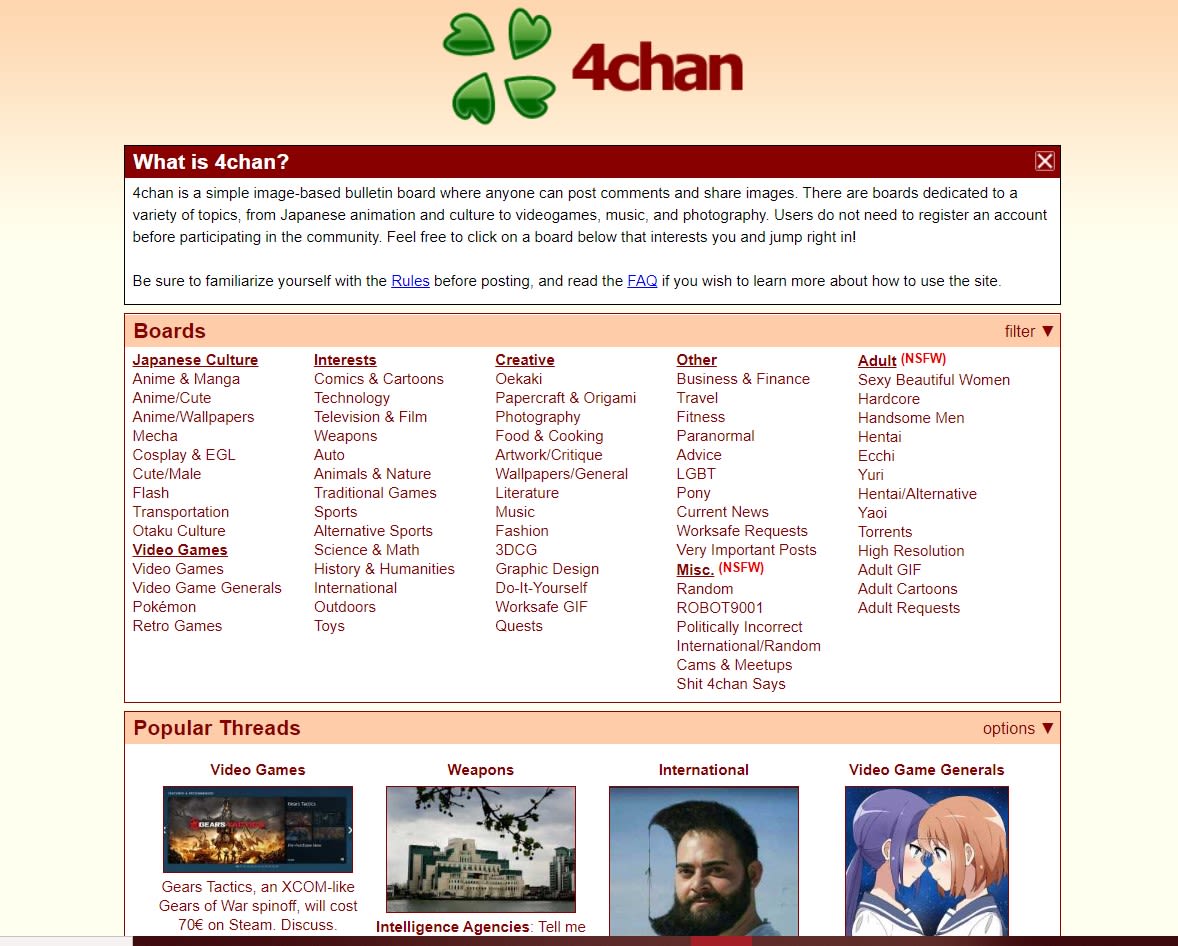
Many consider 4chan, a website with a reputation for offensive and controversial content, to be the main hub of pro-gamergate and far-right discussion online.
Many consider 4chan, a website with a reputation for offensive and controversial content, to be the main hub of pro-gamergate and far-right discussion online.
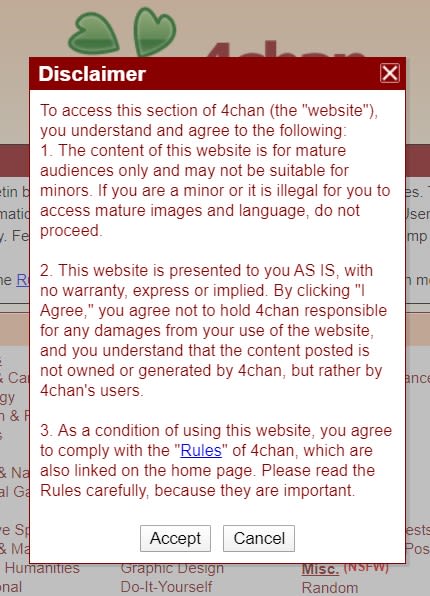
The disclaimer which greets anyone who clicks on the site's video games discussion board (/v/) doesn't exactly do much to dispel the site's reputation.
The disclaimer which greets anyone who clicks on the site's video games discussion board (/v/) doesn't exactly do much to dispel the site's reputation.
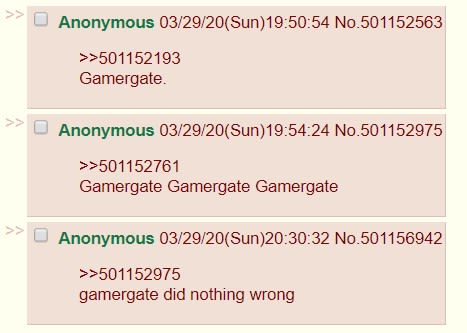
The site is still home to users who, from behind the veil of anonymity 4chan offers, still support (or claim to support) gamergate.
The site is still home to users who, from behind the veil of anonymity 4chan offers, still support (or claim to support) gamergate.
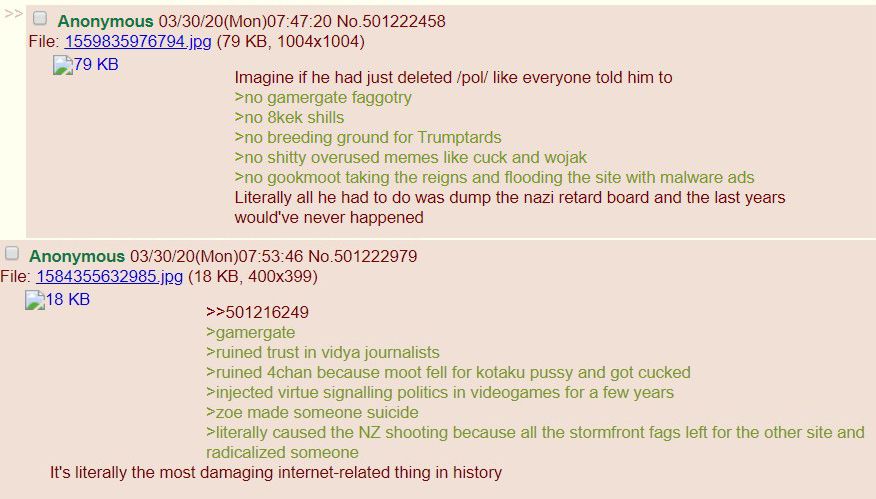
However, this support isn't as universal as one might expect, with some users questioning gamergate's effectiveness at accomplishing its goals and claiming that it 'ruined' the site for them in various ways.
However, this support isn't as universal as one might expect, with some users questioning gamergate's effectiveness at accomplishing its goals and claiming that it 'ruined' the site for them in various ways.


